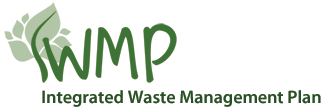3.1 Consultation process: Stakeholder participation
It is important to identify and consult stakeholders throughout the development of the plan. This section should summarise the stakeholders that have been consulted; their issues, concerns, views and inputs. Further municipalities should provide responses to the concerns and issues raised by stakeholders during consultation process where possible. A data sheet detailing all the stakeholders, and their inputs should be kept. Below is an example of how this can be captured:
Table 15: Stakeholder consultation and participation
| Organisation | Issues raised/ Concerns | Municipality's response | General comments |
|---|---|---|---|
| NGO | Role of waste pickers in recycling | The municipality will include waste pickers in waste recycling initiatives | Comment noted, the concern will be dealt with under recycling |
| Business | When will discharge fees be implemented and what criteria will be used to charge disposal fees? | Tariff codes will be set up for different waste types entering the landfill | The full cost accounting study has provided for a range of economic instruments, one of which is the implementation of tariff codes at waste disposal facilities, Interested and affected parties will be informed of the commencement date. |
| General members of the public | Litter is a serious problem in our area, what is the municipality doing to deal with this issue; as it creates a nuisance and has caused vector borne diseases? | A number of interventions are going to be employed, amongst others; will be awareness campaigns on littering and community involvement, the deployment of EMI's to ensure that municipal by-laws are enforced and the inclusion of waste education in the environmental curriculum to educate learners about the environmental and social consequences of littering. | Littering and the enforcement of municipal by-laws have been included as part of our strategic goals and the municipality has developed an implementation plan to ensure that these issues are addressed. |
Main menu - nice menus
Table of contents
- Executive Summary
- List of figures
- List of boxes
- List of tables
- List of graphs
- List of acronyms
- 1. Introduction
- 2. Contents of the IWMP's
- 3. Communication and stakeholder participation
- 4. Implementation instruments
- 5. Approval process
- 6. Reporting on implementation, monitoring and review
- 7. References

